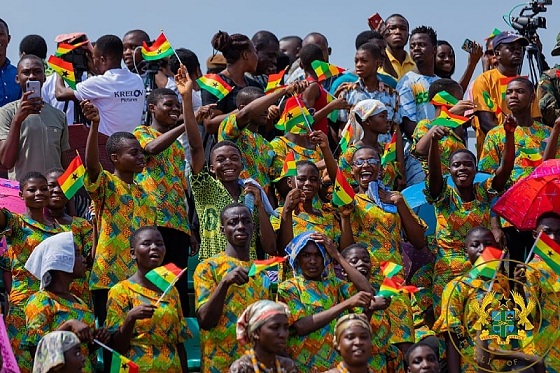A growing number of Ghanaians are expressing support for military intervention in politics if elected leaders abuse their mandate, according to the 2024 Afrobarometer findings.
The survey, conducted by the Centre for Democratic Development-Ghana (CDD-Ghana), reveals that 51 per cent of citizens believe the Ghana Armed Forces should take control in such scenarios, an 11-percentage point increase from the 40 per cent recorded in 2022.
Conversely, public opposition to military involvement in politics is declining, with the percentage of Ghanaians who believe the military should never intervene in political affairs dropping from 55 per cent in 2022, to 47 per cent in 2024.
These findings were shared at a regional dissemination event in Kumasi, organised by CDD-Ghana in collaboration with the Centre for Community Livelihood Development.
The programme was supported by the Deutsche Gesellschaft für Internationale Zusammenarbeit (GIZ) under the Participation, Accountability, Integrity for Resilient Democracy (PAIReD) programme, an initiative co-funded by the European Union (EU), the Swiss State Secretariat for Economic Affairs, and commissioned by Germany’s Federal Ministry for Economic Cooperation and Development (BMZ).
It is being implemented by GIZ in partnership with Ghana’s Ministry of Finance.
Even more concerning is the demographic tilt in support for military intervention with the Ghanaian youth representing the majority of those backing this stance
Fifty-two (52) of respondents aged 18–25 support military takeover in the event of leadership abuse, with 56 per cent of those in the age bracket of 26–35 sharing similar views.
Gender also plays a role, with 53 per cent of men and 48 per cent of women expressing support for a military option under such circumstances.
Ms. Mavis Zupork Dome, Senior Research Analyst at CDD-Ghana, presenting the findings noted that public sentiment was divided on what should follow a military takeover:
Forty-one (41) per cent believe the military should plan a gradual transition to civilian rule, even if it takes years, while 38 per cent advocate for an immediate return to civilian governance.
On the other hand, 14 per cent could not be bothered if the military continued to stay in power for as long as they wanted if it is in the best interest of the country.
Mr. Jonathan Donkor, a Technical Advisor at GIZ, emphasised the importance of citizen engagement in democratic processes.
“It is an undeniable fact that when citizen voices are included in governance, policies better serve people’s needs,” he stated.
He also highlighted the role of data-driven efforts like Afrobarometer in bridging the gap between citizens and policymakers.
The 2024 findings point to a growing disillusionment with democratic leadership in Ghana, especially among the youth, and underscore the urgent need for stronger governance, accountability, and civic education to preserve democratic stability.
GNA





